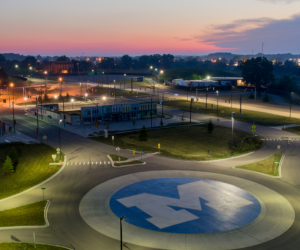
Sorry, your browser is not compatible with this application. Please use the latest version of Google Chrome, Mozilla Firefox, Microsoft Edge or Safari.
MCity Driverless Shuttle: What We Learned About Consumer Acceptance of Automated Vehicles
Self-driving vehicles—also referred to as driverless, fully-automated, or autonomous—are today’s automotive frontier. Not since the birth of the automobile more than a century ago has a vehicle technology offered such promise to improve our quality of life. Fewer traffic deaths and injuries. Decreased fuel use and energy consumption. Increased access to transportation for people without reliable mobility options: the elderly, those with disabilities, the unemployed and underemployed who struggle to find a way to get to work if they can find a job. Driverless vehicles could fundamentally change the way people and goods are transported and benefit society as a whole in tangible, meaningful ways. But only if consumers accept the technology and trust it to keep them and their families safe. So far, consumers are wary.
Interested in transportation? Check out this GovWhitePapers blog post! You can also find events on transportation on our sister site, GovEvents.

| Format: |
|
| Topics: | |
| Website: | Visit Publisher Website |
| Publisher: | M City |
| Published: | October 1, 2020 |
| License: | Copyrighted |
| Copyright: | © 2021 The Regents of the University of Michigan |
Featured Content

Contact Publisher


Claim Content





